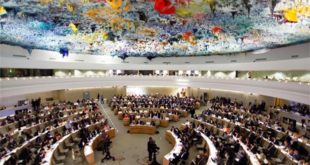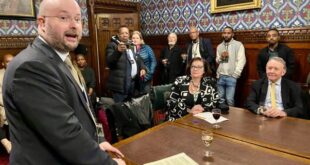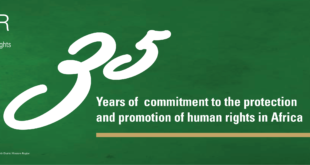Annual Report: Eritrea 2013
Eritrea
Head of state and government Isaias Afewerki
National service conscription was compulsory and frequently extended indefinitely. Military training for children remained compulsory. Conscripts were used as forced labour. Thousands of prisoners of conscience and political prisoners continued to be arbitrarily detained in appalling conditions. Torture and other ill-treatment were common. No opposition parties, independent media or civil society organizations were permitted. Only four religions were sanctioned by the state; all others were banned and their followers arrested and detained. Eritreans continued to flee the country in large numbers.
Background
The humanitarian situation in the country was reported to be serious and the economy remained stagnant. However, the mining sector continued to develop, with foreign governments and private companies interested in Eritrea’s significant deposits of gold, potash and copper, despite a risk of complicity in human rights violations through the use of forced labour at mining sites.
The Ethiopian army conducted military incursions into Eritrea twice in March, announcing successful attacks on camps where they claimed Ethiopian rebel groups trained. Ethiopia blamed Eritrea for backing a rebel group that attacked a group of European tourists in Ethiopia in January (see Ethiopia entry). The group which claimed responsibility for the incident said it had no camps in Eritrea.
In July, the UN Human Rights Council appointed a Special Rapporteur on Eritrea, in response to “the continued widespread and systematic violations of human rights… by the Eritrean authorities.” The Eritrean government dismissed the appointment as politically motivated.
In July, the UN Monitoring Group on Somalia and Eritrea reported that Eritrea’s support for al-Shabab in Somalia had declined, but that Eritrea continued to harbour armed opposition groups from neighbouring countries, especially Ethiopia. The report also found that Eritrean officials were involved in trafficking of weapons and human beings.
Around the middle of the year, reports indicated that the government was distributing guns to the civilian population, for unknown reasons.
Prisoners of conscience and political prisoners
Thousands of prisoners of conscience and political prisoners remained in arbitrary detention in appalling conditions. They included politicians, journalists and religious practitioners. They also included people caught trying to evade national service, flee the country or move around the country without a permit. Some prisoners of conscience had been detained without charge for over a decade.
High profile prisoners were not permitted visitors and in most cases their families did not know their location or health status. The government continued to refuse to confirm or deny reports that a number of prisoners had died in detention.
- It was reported that three journalists – Dawit Habtemichael, Mattewos Habteab and Sahle Tsegazab – all arbitrarily detained since their arrest in 2001, had died in detention in recent years. The government did not confirm these reports.
Freedom of religion or belief
Only members of permitted faiths – the Eritrean Orthodox, Roman Catholic and Lutheran Churches, and Islam – were allowed to practice. Members of banned faiths continued to be arrested, arbitrarily detained and ill-treated.
- In April, 10 Jehovah’s Witnesses were arrested in Keren, in connection with their attendance at a funeral. At the end of the year, 56 Jehovah’s Witnesses were reported to be imprisoned for practising their faith.
Torture and other ill-treatment
Torture and other ill-treatment of prisoners were widespread. Prisoners were beaten, tied in painful positions and left in extreme weather conditions, and held in solitary confinement for long periods. Conditions in detention amounted to cruel, inhuman or degrading treatment. Many detainees were held in metal shipping containers or underground cells, often in desert locations, where they were exposed to extremes of heat and cold. Detainees received inadequate food and water. They were frequently denied – or provided with only inadequate – medical care.
 ELL Eritrean Lowland League
ELL Eritrean Lowland League



